People have taken to the streets in towns and cities across England in demonstrations against a crime bill they fear will limit their right to protest.
Kill the Bill protests have been staged in London, Newcastle, Birmingham, Liverpool and Bristol, despite the lockdown restrictions.
Protesters, including many who carried anti-sexism placards and chanted “women scared everywhere, police and Government do not care”, passed Downing Street.
Organisers reminded demonstrators to stay socially distanced as crowds grew to more than 300 in London’s Parliament Square, where speeches were made opposite the Houses of Parliament.
Several women addressed the crowd and shared personal experiences of suffering abuse and being drugged.
After hearing from several speakers from various women’s rights groups, demonstrators dispersed peacefully just after midday.
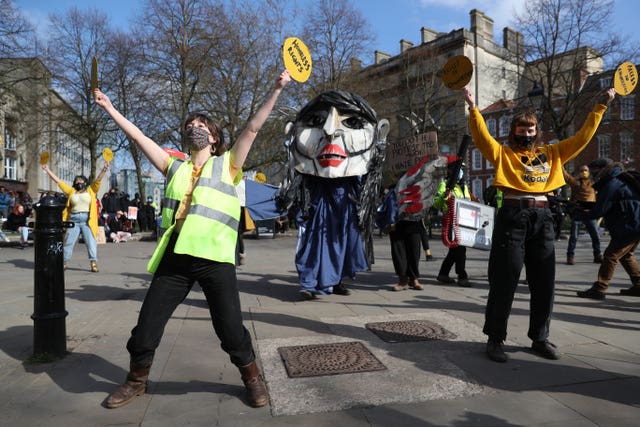
The protests have been sparked by the proposed Police, Crime, Sentencing and Courts Bill, would give police in England and Wales more power to impose conditions on non-violent protests, including those deemed too noisy or a nuisance, with those convicted liable to fines or jail terms.
Protests on March 23 and 26 in Bristol ended in clashes between the police and protesters.
Placards carried by protesters included slogans such as “educate your sons”, “misogyny is the virus”, and “girls just wanna have fun-damental human rights”.
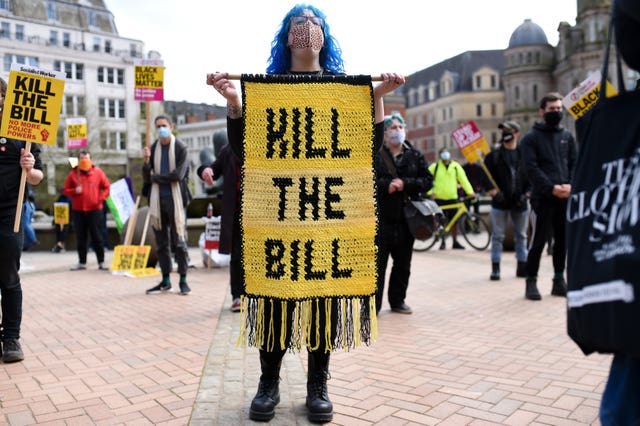
Many people who were carrying Kill the Bill placards also gathered at Hyde Park in central London.
Demonstrators chanted and banged drums.
Former Labour leader Jeremy Corbyn told the crowds in London that the Bill as a “very dangerous, slippery slope,” as he defended the right to protest.
To cheers and applause, he said: “If we don’t protest, things don’t change.”
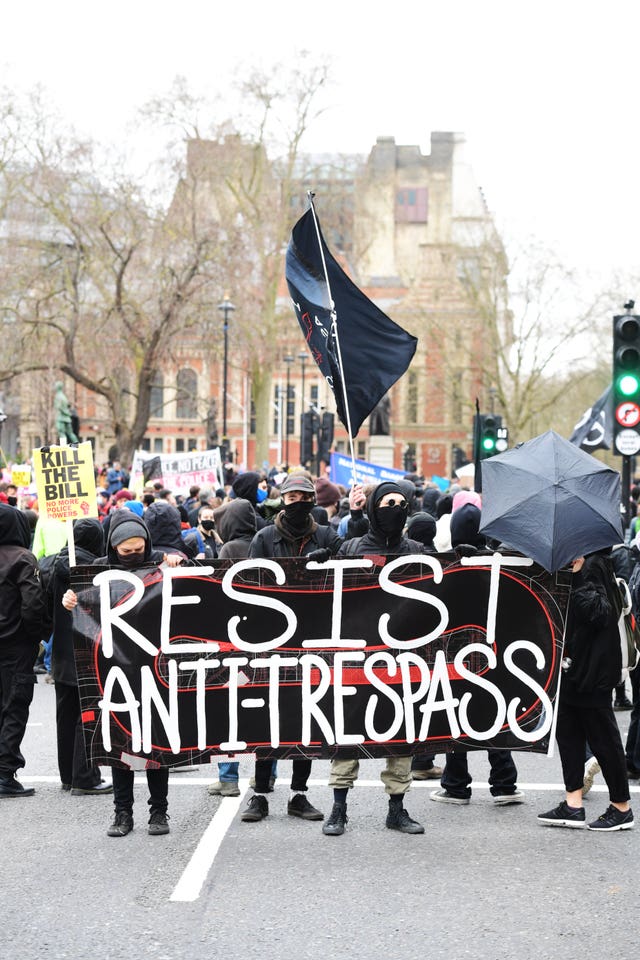
By Saturday evening, the Metropolitan Police said that “a small minority” of protesters were still in Parliament Square and were risking enforcement action after turning down requests to leave.
A spokesman said: “They are not social distancing and are putting people in danger of spreading the Covid virus. The majority have left and we urge those remaining to listen to officers and leave the area now.”
Dorset Police thanked those who took part in “peaceful protests” in Bournemouth and Weymouth and stuck to the Covid-19 restrictions.
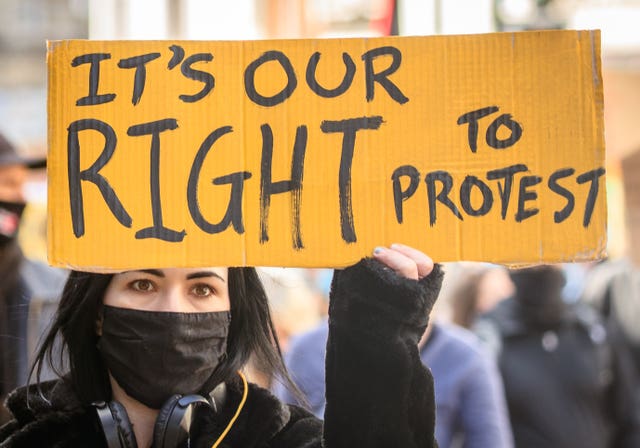
Dorset Police Superintendent Richard Bell said: “We have always sought to find the right balance between the rights of protesters and those of residents and businesses, while also considering the very real risks from the spread of the virus.”
There was a low-key response from Northumbria Police as hundreds of people gathered beneath Grey’s Monument in Newcastle.
Protesters, including one who held up a placard saying “we will not be silenced”, cheered as a singer with a guitar performed in opposition to the proposed bill.
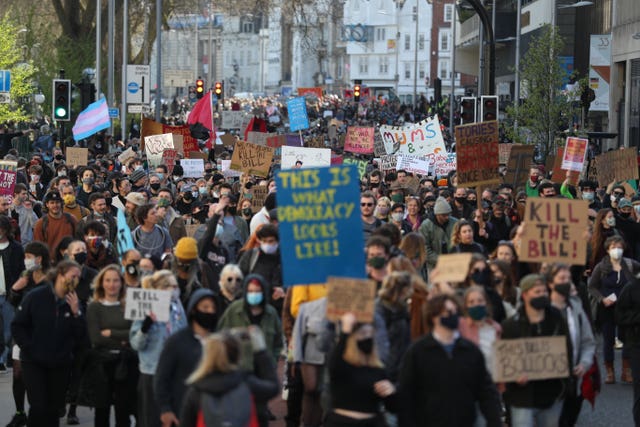
Demonstrators who marched from the monument through Newcastle city centre chanted: “Whose streets, our streets.”
They also referred to the Home Secretary, chanting “F*** Priti Patel”.
Many took the knee at the Civic Centre and held a minute’s silence for victims of oppression, after which a round of applause broke out.




Why are you making commenting on The National only available to subscribers?
We know there are thousands of National readers who want to debate, argue and go back and forth in the comments section of our stories. We’ve got the most informed readers in Scotland, asking each other the big questions about the future of our country.
Unfortunately, though, these important debates are being spoiled by a vocal minority of trolls who aren’t really interested in the issues, try to derail the conversations, register under fake names, and post vile abuse.
So that’s why we’ve decided to make the ability to comment only available to our paying subscribers. That way, all the trolls who post abuse on our website will have to pay if they want to join the debate – and risk a permanent ban from the account that they subscribe with.
The conversation will go back to what it should be about – people who care passionately about the issues, but disagree constructively on what we should do about them. Let’s get that debate started!
Callum Baird, Editor of The National
Comments: Our rules
We want our comments to be a lively and valuable part of our community - a place where readers can debate and engage with the most important local issues. The ability to comment on our stories is a privilege, not a right, however, and that privilege may be withdrawn if it is abused or misused.
Please report any comments that break our rules.
Read the rules hereComments are closed on this article